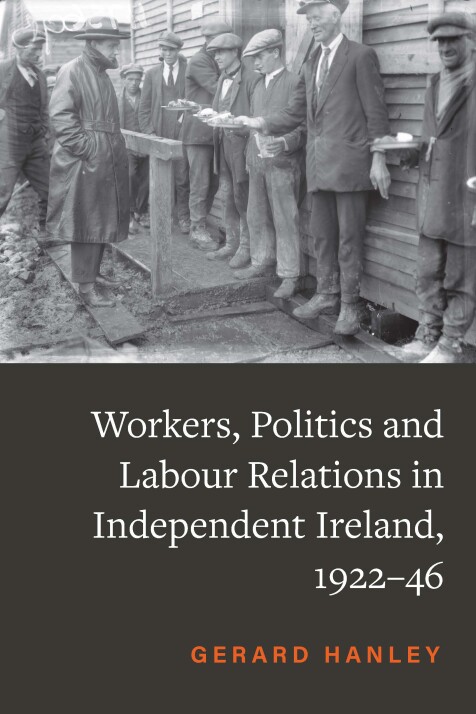Workers, Politics and Labour Relations in Independent Ireland, 1922–46
Gerard Hanley
"Gerard Hanley provides compelling accounts of two very significant disputes during the Civil War ... this book helps us understand the importance of social and economic factors in securing popular support for de Valera's party after 1932 ... Hanley's study is essential for anyone who wants to understand organised labour in the first decades of the new Irish State." Brian Hanley, Irish Times, February 2024.
"Political independence promises much, but rarely delivers to the most disadvantaged sections in the new state. This certainly proved to be the case for the Irish working class and trade unionists between 1922 and 1932, as this welcome new study on labour relations in independent Ireland shows ... While it would be a mistake to say that nothing changed after independence, Gerard Hanley makes a very powerful case that conditions for disadvantaged groups deteriorated after independence ... The precarious position of labour in the Free State is exposed in great detail in a chapter on unemployment, demonstrating that the unemployment figures are completely unreliable; this meant that a significant number were not registered and therefore could not receive financial support ... this book offers a fresh and well-researched assessment of the Irish labour movement and the challenges it faced." Brian Girvin, History Ireland, May/June 2024
"essential reading for those with ancestral connections to the labour movement in Ireland and, of course, for the social historian and local historian seeking to understand the wider context, in which, national and local industrial disputes occurred and the political response ... Whether our family members were trade union members, involved in industrial actions or in the wider labour movement, this work provides a long overdue examination of labour relations in Ireland during the period 1922 to 1946." Ireland's Genealogical Gazette, February 2024


